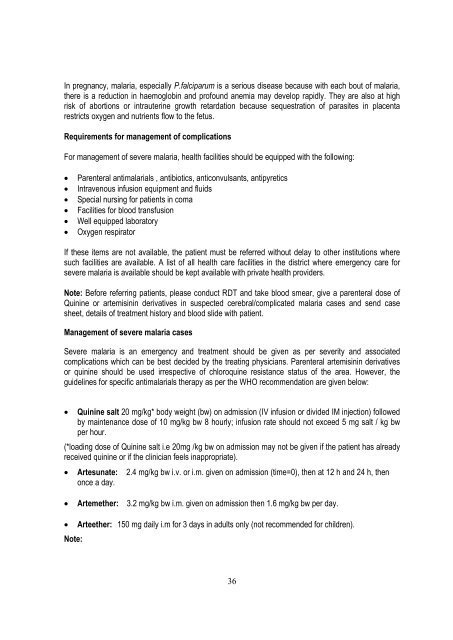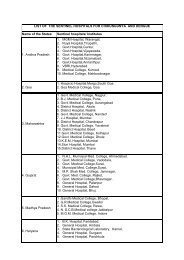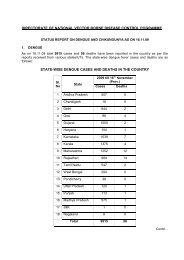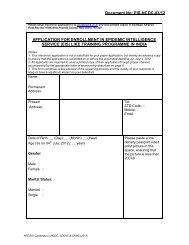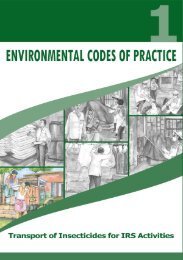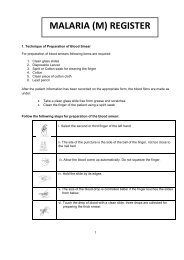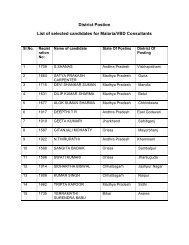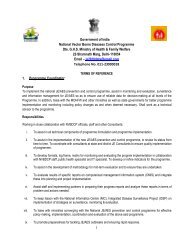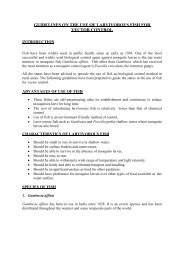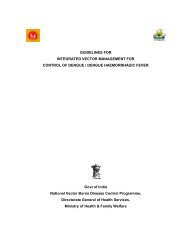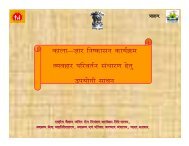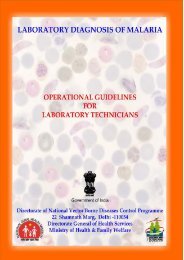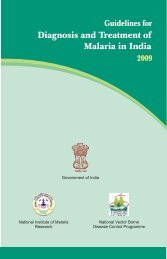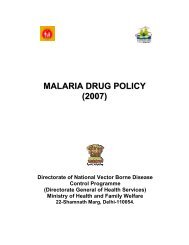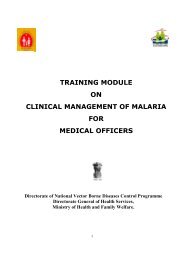training module for medical officers primary health centre - NVBDCP
training module for medical officers primary health centre - NVBDCP
training module for medical officers primary health centre - NVBDCP
- No tags were found...
Create successful ePaper yourself
Turn your PDF publications into a flip-book with our unique Google optimized e-Paper software.
In pregnancy, malaria, especially P.falciparum is a serious disease because with each bout of malaria,there is a reduction in haemoglobin and profound anemia may develop rapidly. They are also at highrisk of abortions or intrauterine growth retardation because sequestration of parasites in placentarestricts oxygen and nutrients flow to the fetus.Requirements <strong>for</strong> management of complicationsFor management of severe malaria, <strong>health</strong> facilities should be equipped with the following:Parenteral antimalarials , antibiotics, anticonvulsants, antipyreticsIntravenous infusion equipment and fluidsSpecial nursing <strong>for</strong> patients in comaFacilities <strong>for</strong> blood transfusionWell equipped laboratoryOxygen respiratorIf these items are not available, the patient must be referred without delay to other institutions wheresuch facilities are available. A list of all <strong>health</strong> care facilities in the district where emergency care <strong>for</strong>severe malaria is available should be kept available with private <strong>health</strong> providers.Note: Be<strong>for</strong>e referring patients, please conduct RDT and take blood smear, give a parenteral dose ofQuinine or artemisinin derivatives in suspected cerebral/complicated malaria cases and send casesheet, details of treatment history and blood slide with patient.Management of severe malaria casesSevere malaria is an emergency and treatment should be given as per severity and associatedcomplications which can be best decided by the treating physicians. Parenteral artemisinin derivativesor quinine should be used irrespective of chloroquine resistance status of the area. However, theguidelines <strong>for</strong> specific antimalarials therapy as per the WHO recommendation are given below:Quinine salt 20 mg/kg* body weight (bw) on admission (IV infusion or divided IM injection) followedby maintenance dose of 10 mg/kg bw 8 hourly; infusion rate should not exceed 5 mg salt / kg bwper hour.(*loading dose of Quinine salt i.e 20mg /kg bw on admission may not be given if the patient has alreadyreceived quinine or if the clinician feels inappropriate). Artesunate: 2.4 mg/kg bw i.v. or i.m. given on admission (time=0), then at 12 h and 24 h, thenonce a day. Artemether: 3.2 mg/kg bw i.m. given on admission then 1.6 mg/kg bw per day.Note:Arteether: 150 mg daily i.m <strong>for</strong> 3 days in adults only (not recommended <strong>for</strong> children).36


